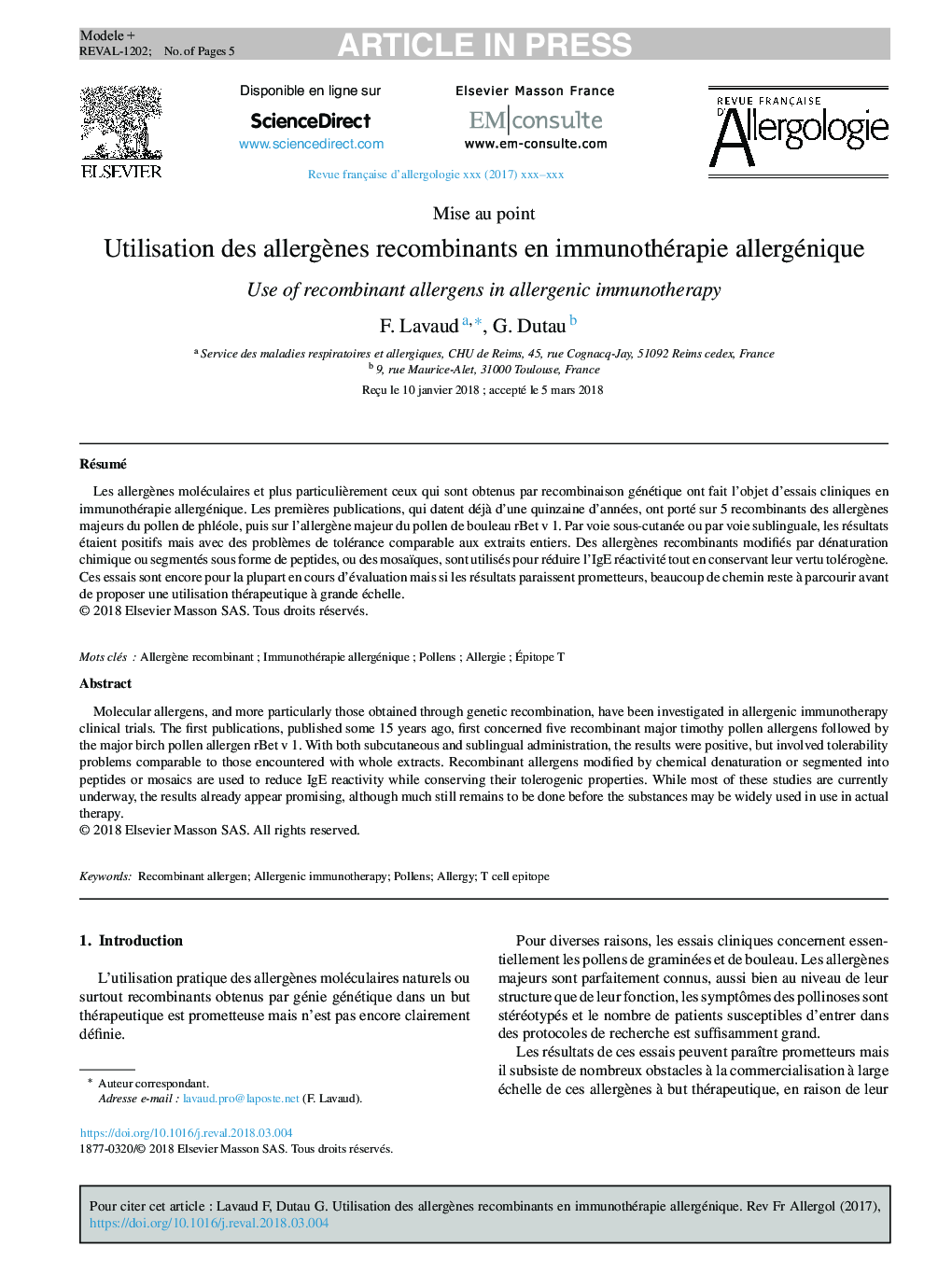| Article ID | Journal | Published Year | Pages | File Type |
|---|---|---|---|---|
| 11014190 | Revue Française d'Allergologie | 2018 | 5 Pages |
Abstract
Molecular allergens, and more particularly those obtained through genetic recombination, have been investigated in allergenic immunotherapy clinical trials. The first publications, published some 15 years ago, first concerned five recombinant major timothy pollen allergens followed by the major birch pollen allergen rBet v 1. With both subcutaneous and sublingual administration, the results were positive, but involved tolerability problems comparable to those encountered with whole extracts. Recombinant allergens modified by chemical denaturation or segmented into peptides or mosaics are used to reduce IgE reactivity while conserving their tolerogenic properties. While most of these studies are currently underway, the results already appear promising, although much still remains to be done before the substances may be widely used in use in actual therapy.
Related Topics
Health Sciences
Medicine and Dentistry
Immunology, Allergology and Rheumatology
Authors
F. Lavaud, G. Dutau,
